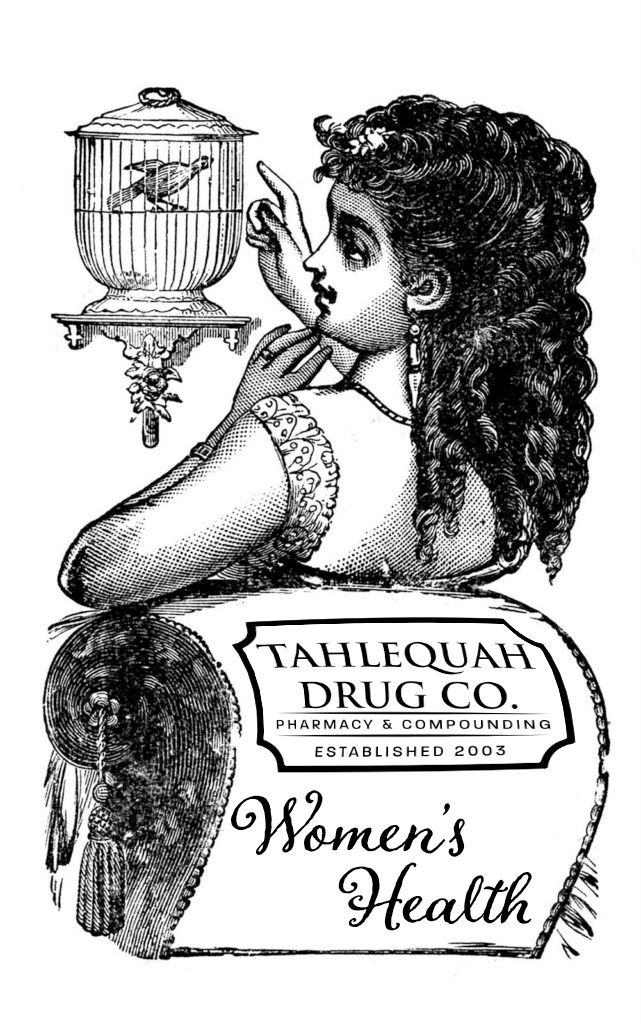Genitourinary Syndrome of Menopause Guidelines from the American Urologic Association May 2025
- Jun 14, 2025
- 3 min read
Updated: Nov 19, 2025

Tahlequah Drug Compounding
Pharmacist: Shanon Gower & Jana Evensen
In April the American Urology Association published their Guidelines on Genitourinary Syndrome of Menopause. (GSM) Genitourinary Syndrome of Menopause: AUA/SUFU/AUGS Guideline (2025) - American Urological Association This paper was six years in the making and describes the spectrum of symptoms and physical changes resulting from declining estrogen and androgen concentrations in the genitourinary tract during a woman’s menopausal transition.
In Kelly Casperson’s Episode 315 she joins another urologist, Dr. Rachel Rubin (who served on the AUA’s panel creating this document). Go to our podcasts section at Tahlequah Drug Company | Women's Health to listen.
According to Rachel Rubin these guidelines are “bold, simple, unapologetic, evidence based and very clear that vaginal hormones are absolutely preventative and help women with painful intercourse, overactive bladders and UTI. They are safe to take if you have had breast cancer or a family history of breast cancer, they are safe to take if you have had a blood clots or endometrial cancer. Their therapy is lifelong”. Visit her website to learn more or look at pdf and educational resources to share with your doctor? Rachel Rubin MD | sexual medicine Focus on preventing UTI’s with vaginal estrogen.
Let’s say you are going to have hip replacement and know that you will be catheterized during your hospital stay. Your surgeon should start you on vaginal estrogen the month before. The doctor does not need to perform endometrial surveillance solely due to low does vaginal estrogen or DHEA. One study explained that if all women were given vaginal estrogen and they used it we could see a 22% reduction in hospital rates, a 50% decrease in sepsis and a 73% decrease in mortality. We, as women, all know of one elder whose demise began with a UTI. It is estimated we could save 6 to 22 billion dollars a year on hospital visits for UTI’s.
What exactly is GSM?
The prevalence is 13-87%. There is no consensus on the number or types of symptoms a
woman may have.
Vulvovaginal | Urinary | Sexual |
dryness urgency frequency dyspareunia bleeding | burning dysuria low libido & arousal | irritation recurrent UTI decreased orgasm |
Key points from the UAU’s paper:
• Clinicians do NOT have to perform endometrial surveillance solely due to low dose
vaginal estrogen or DHEA. While vaginal exams are recommended (Doctors love exams
and you should have exams). Many doctors don’t understand what they are looking at?
Also, it is difficult to exam using telemedicine.
• The paper cites the importance of “Shared Decision Making” between a patient and a
practitioner. Dr says “no” ….. that is not shared decision making. You are a partner in
a patient’s health …. not God. Evidence and patient preference should be taken into
consideration.
• Treatment involves vaginal estrogen and androgens (DHEA)
• Treatment is lifelong.
• Pelvic Floor exercises can also be helpful. Hormones help skin but physical therapy
helps muscles.
Treatment available from Tahlequah Drug:
Compounded Estradiol 0.1% cream/ DHEA 6mg
Vaginal Cream Sig: 1 gram vaginally hs x 2 weeks then use twice to three times a week. $50.00 for 4 months of therapy.
Commercially available treatment of GSM:
Will take 8 weeks to work …. you must regrow tissue.
Cream: estradiol 0.01% or conjugated estrogens: (Estrace or Premarin) Sig: 1 gram vaginally at bedtime for 2 weeks, then 1 gram twice a week thereafter. Cost of generic: $43.00 for 4 months therapy
Tablet: 10 mcg vaginal estrogen insert (Vagifem). Cost of generic: $55.00/month
Sig: insert vaginally nightly for 2 weeks, then use twice a week thereafter.
Vaginal Ring: estradiol 2mg ring (E-string insert). Cost: $250.00 for 3 months
Sig: Replace every 3 months
Vagina Insert: DHEA 6.5mg (Intrarosa). Cost: $311/month Sig: insert vaginally nightly
Oral: Osphena: 60mg Is a selective estrogen receptor modulator ( SERM) It works by
binding to estrogen receptors and acting like estrogen in some tissues while blocking its effects in others. Specifically, in the vaginal tissue, Osphena acts as an estrogen agonist, helping to thicken and strengthen the vaginal lining. Cost: $99.00/month.
Side effects of vaginal estrogen?
Because estrogen can change the microbiome and the vagina’s pH it can cause a yeast infection. This is no reason to stop the cream. Give Diflucan and back down on the dose until the microbiome adjusts, then go back up with the dose. Other conditions that change the microbiome include BC pills, breast feeding or taking aromatase inhibitors.
A note on DHEA: Do not use oral DHEA because it lacks tissue response that vaginal
application provides. Topical DHEA, once in the cell is a switch hitter, it can metabolize to
either estradiol or testosterone whichever the cell needs. So vaginal DHEA can help with
vaginal dryness or response.
In closing: Please advocate for women’s health. We know that vaginal estrogen is safe, affordable, works & hurts no one.




Comments